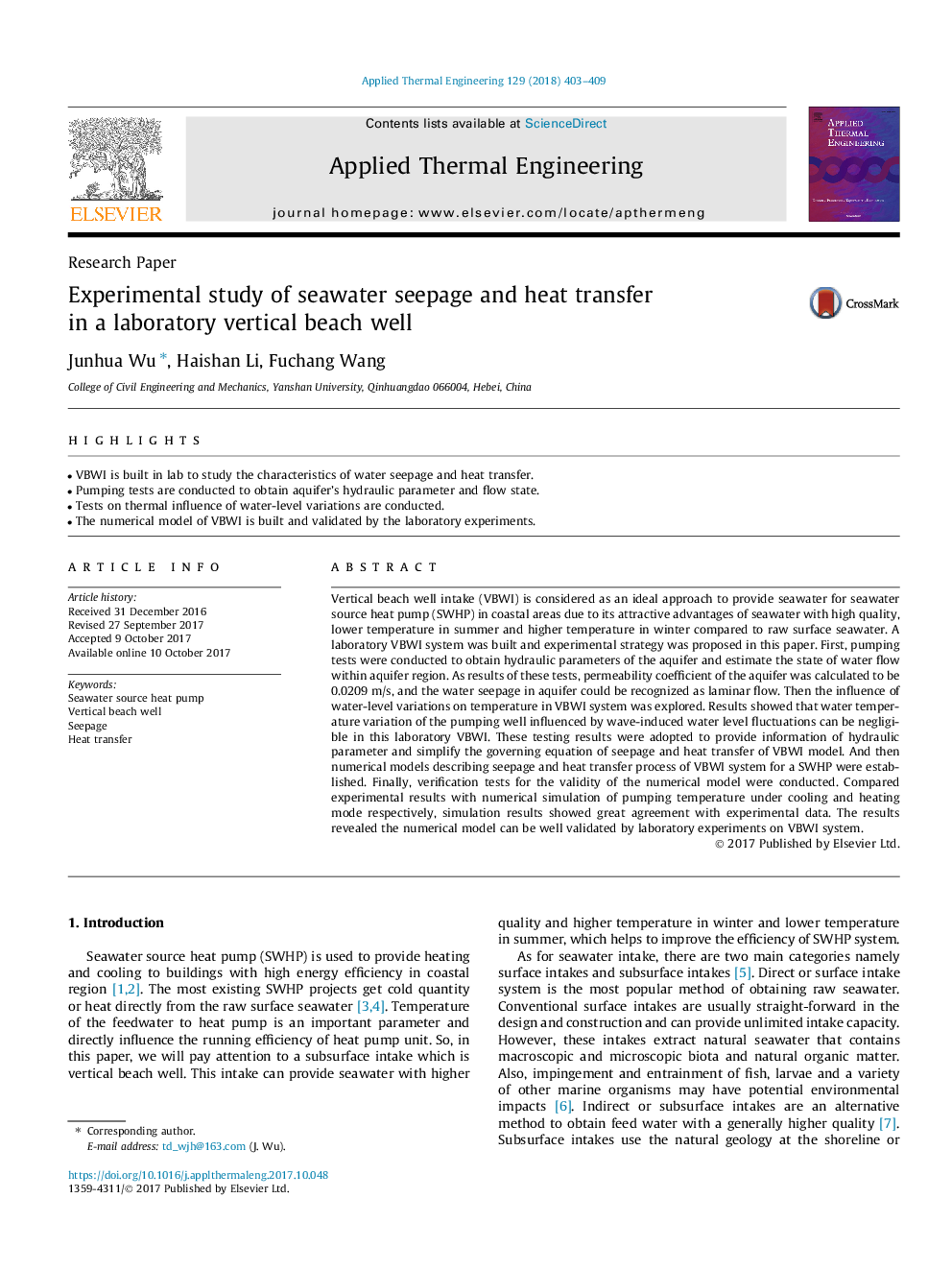| Article ID | Journal | Published Year | Pages | File Type |
|---|---|---|---|---|
| 4990347 | Applied Thermal Engineering | 2018 | 7 Pages |
Abstract
Vertical beach well intake (VBWI) is considered as an ideal approach to provide seawater for seawater source heat pump (SWHP) in coastal areas due to its attractive advantages of seawater with high quality, lower temperature in summer and higher temperature in winter compared to raw surface seawater. A laboratory VBWI system was built and experimental strategy was proposed in this paper. First, pumping tests were conducted to obtain hydraulic parameters of the aquifer and estimate the state of water flow within aquifer region. As results of these tests, permeability coefficient of the aquifer was calculated to be 0.0209â¯m/s, and the water seepage in aquifer could be recognized as laminar flow. Then the influence of water-level variations on temperature in VBWI system was explored. Results showed that water temperature variation of the pumping well influenced by wave-induced water level fluctuations can be negligible in this laboratory VBWI. These testing results were adopted to provide information of hydraulic parameter and simplify the governing equation of seepage and heat transfer of VBWI model. And then numerical models describing seepage and heat transfer process of VBWI system for a SWHP were established. Finally, verification tests for the validity of the numerical model were conducted. Compared experimental results with numerical simulation of pumping temperature under cooling and heating mode respectively, simulation results showed great agreement with experimental data. The results revealed the numerical model can be well validated by laboratory experiments on VBWI system.
Related Topics
Physical Sciences and Engineering
Chemical Engineering
Fluid Flow and Transfer Processes
Authors
Junhua Wu, Haishan Li, Fuchang Wang,
